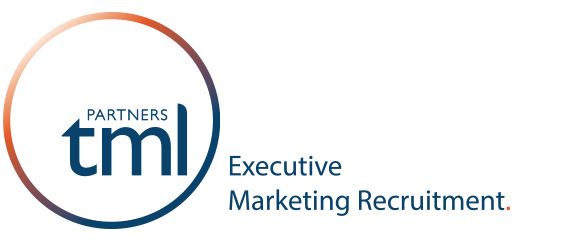We recently commenced our 2021 networking roundtables for female leaders in communications with a discussion on the importance of purpose. Naomi Hamilton, Senior Consultant in our Corporate Affairs practice, moderated the sessions and introduced our guest speakers:
- Judith Green, Director Communications, Brand and Executive Projects Eversheds Sutherland
- Jo Perrin Comms, Consultant, ex Verizon
We were joined by a group leading communicators representing a range of sectors and disciplines:
- Kristina Blissett, Head of Group Communications, Coats
- Sophie Fitton, Corporate Affairs consultant
- Charlotte Harvey, Amey, Director of Communications
- Charlotte West, Lenovo, Executive Director, Global Corporate Communications
- Alison Flynn, Petrofac, Group Director of Corporate Affairs and Sustainability
- Claire Gosnell, Clifford Chance, Global Head of Brand, Communications and Marketing
- Mary Whenman, British Business Bank, Director of Communications
- Jo Ouvry, Deloitte, Partner and Head of Corporate Affairs
- Natalie Cotton, Arcadis, Global Transformation Director
- Tina Coates, Metro Bank, Director Corporate Affairs
- Stephanie Mackrell, The Climate Group, Head of Corporate Communications
Having shared where everyone was on their journey to becoming a purpose led business, it was noted that the sector, size or scale of an organisation had no bearing on their progress. Purpose has rapidly made the shift from being fairly niche, to mainstream, to an absolute commercial imperative.
The transition has been a bumpy one. Inherent tensions between money-making and purpose and the increasing pressure from external stakeholders and employees has meant there are many potential pitfalls. When things do go wrong, it was widely agreed that the blame landed with the corporate affairs function. However, when successful, the impact on the business can be phenomenal and it’s the responsibility of the communications function to hold the business accountable.
The lively discussions centred around four main themes:
- Measurement, accountability and transparency
- The link between ESG and purpose
- Authenticity and purpose washing
- Role of leadership
Measurement, accountability and transparency
How do we find the balance for the business? How do we get colleagues engaged in it? How do we know how far can we go? How do we get different geographies in different nations to come around in how they communicate it? How big does a purpose need to be?
These were all questions attendees asked themselves when working with their organisations on developing their corporate purpose. Purpose is an incredibly broad term, and corporate affairs plays the role of making purpose accessible and understandable to the wider business.
“This is breaking purpose down to the simplest term: what is the social value of what you contribute to where you are?”
Putting metrics and measurements in place to track purpose commitments make it relatable, both internally and externally. They don’t have to be grand but they need to be realistic, so that everyone can be accountable and an organisation can maintain transparency throughout its journey. Commitments to being a purpose-led business need to be real, actionable and measurable. Communicating the metrics encourages accountability from colleagues because they understand what the organisation is striving to achieve and the part they play in it. One example was as simple as putting a volunteering target in place, where regions would have to ‘clock up’ their volunteering hours for causes that aligned with the company’s purpose. This meant employees could see what their colleagues were doing, and the impact of it against a company target.
“The reality of purpose is that it is nobody’s job and everybody’s job.”
Transparency throughout allows colleagues to come together and find the consensus. You gain credibility by explaining openly where you are on your journey. By being transparent and making everyone accountable, ownership is on everyone in the organisation to honour the commitments being made.
ESG and purpose
The link between ESG and purpose was apparent throughout the discussions. Whilst organisations focus on their purpose, there has also been a heightened focus on their ESG agenda. The two are intrinsically linked, and increasing expectation from investors on ESG and purpose were felt across the board. The corporate affairs function has a role in demonstrating purpose and ESG in action, whilst also questioning the business and reminding their organisation of their commitments when making business decisions.
People want to see the progress and while ESG analysts focus on the journey rather than the end result, the corporate affairs function has a responsibility to communicate the impact of the end result, whilst also using ESG indices to hold stakeholders and colleagues accountable. The KPIs need to align to the company and their reputation goals so that corporate affairs can showcase the results.
“‘ESG is not about my function doing a great report, it is about the business delivering and then us showcasing the results of that. That’s a constant dialogue and tension”
The corporate affairs function is there to amplify great stories, they are not responsible for delivering the ESG strategy. ESG commitments give corporate affairs a handbook that they can use to hold their organisation accountable on their purpose and how they impact their environment and community.
In some instances, companies use their values to frame their ESG and purpose commitments, in order to make them easy to understand and relatable to colleagues. People want to see the progress of positive changes, so integrating ESG reporting with purpose, reputation and business performance makes it tangible to the different audiences.
“Purpose is the why. CSR is the inside-out view of balancing people, planet and profit. ESG is the outside-in view of market driven stuff and how we need to behave as a company”
Whether it is CSR, ESG or purpose, corporate affairs is not there to drive them through the business, but bring together the work the business is doing to hold it accountable and showcase their progress to internal and external audiences.
Authenticity/purpose washing
The conversation kept coming back to the authenticity of purpose within an organisation. Being authentic helps with buy-in and prevents an organisation falling victim to ‘purpose washing’. Authenticity means that a business’ purpose can evolve by setting ambitions that are manageable.
“Communications can’t just wrap it in glitter”
‘Purpose washing’, having a self-serving purpose rather than one that is for the greater good is a brand issue, and in turn a communications issue. Purpose needs to be more than a strapline on the website or an annual campaign. It must be something that all colleagues buy into because it feels authentic
Colleagues have to fully understand what it means so that they can be taken on the journey and be part of its development. The corporate affairs function plays the role of shaping the narrative to allow that to happen.
As well as having a role to keep organisations honest and authentic, asking the right questions to all stakeholders enables corporate affairs to be able to share the mission effectively. By being inauthentic, organisations run the risk of adopting a generic purpose, one that could be applied to any organisation, which makes it hard to land.
Role of leadership
The drive to becoming a purpose led business, like all strategic business goals, needs high levels of engagement from the leadership. Purpose is a structural issue that leaders need to address and consistently communicate on.
CEOs need to talk about it regularly in their engagement with internal and external audiences. Sharing insight into the business purpose at town halls gives employees the opportunity to understand its relevance to the business and how the purpose is linked to the business’ visions and values. The c-suite’s communication of purpose is fundamental in making it part of everyone’s job.
“For purpose to work you need to have it fully integrated into BAU. You need to have leadership engagement form the top down, but actually at every level of the business.”
Support of the C-suite gives it more momentum An organisation’s commitment to purpose is under the microscope from investors as well as employees. By focusing on the end result with c-suite stakeholders, organisations can create a link for the c-suite with the purpose and the need to invest in it. Where corporate affairs found that there was a disconnect between c-suite and purpose, they were able to effectively engage c-suite on it by leveraging off of external pressures from clients and investors.
“End result is great, to get there is great, the reason you are doing it is irrelevant”
Conclusion
A sharpened focus on how organisations live and breathe purpose means that the corporate affairs function has a responsibility to consider brand reputation every step of the way. Corporate affairs plays a vital role in bringing the purpose to life and telling the story of it to audiences.
“A company with purpose means being able to evidence how it is a good corporate citizen for all of society, not just its immediate stakeholders.”
The corporate affairs function has a responsibility to challenge leadership and colleagues to take ownership of an organisation becoming purpose led. It shouldn’t stifle the growth of an organisation but work as a moral compass.
Purpose leads into ‘the why’ and if an organisation can’t answer why they exist then it loses its differentiator, which is vital in making customers, potential hires and investors choose them. The corporate affairs function can question the business, and has a responsibility to ask the difficult questions. It’s better they’re asked internally rather than in the outside world by journalists, for example.
“Comms keeps us honest and accountable as an organisation”
In summary, corporate affairs plays a pivotal role in effective engagement on purpose but every employee is responsible for driving a purpose-led business. Corporate affairs has the responsibility of making purpose real and showcasing the great work an organisation is doing.
Naomi Hamilton is a senior member of the Corporate Affairs practice at tml Partners and is currently partnering with leading brands across B2B, professional services and heavily regulated industries. If you are looking to hire into your team, then we are highly experienced and ready to help.




